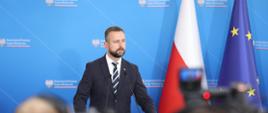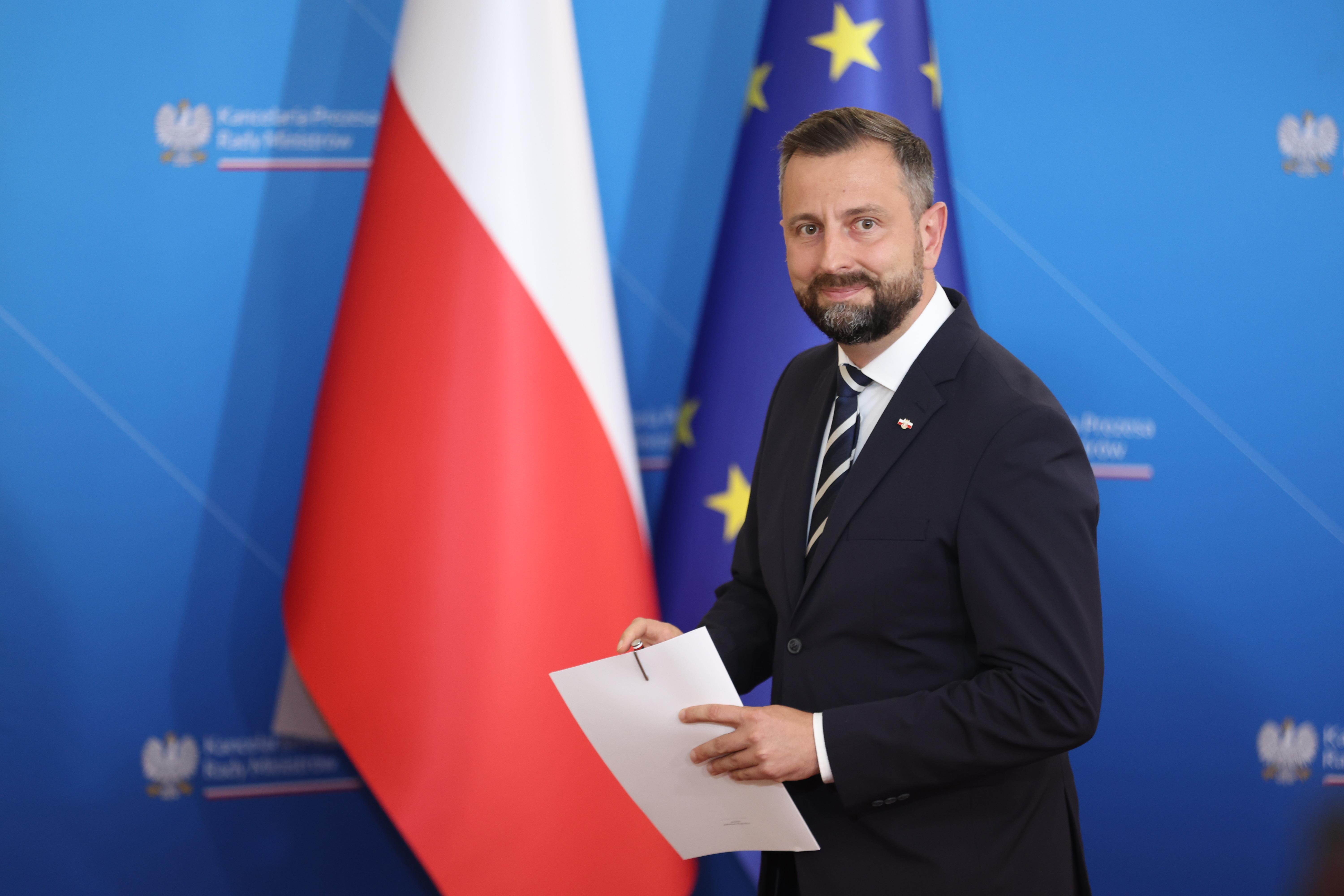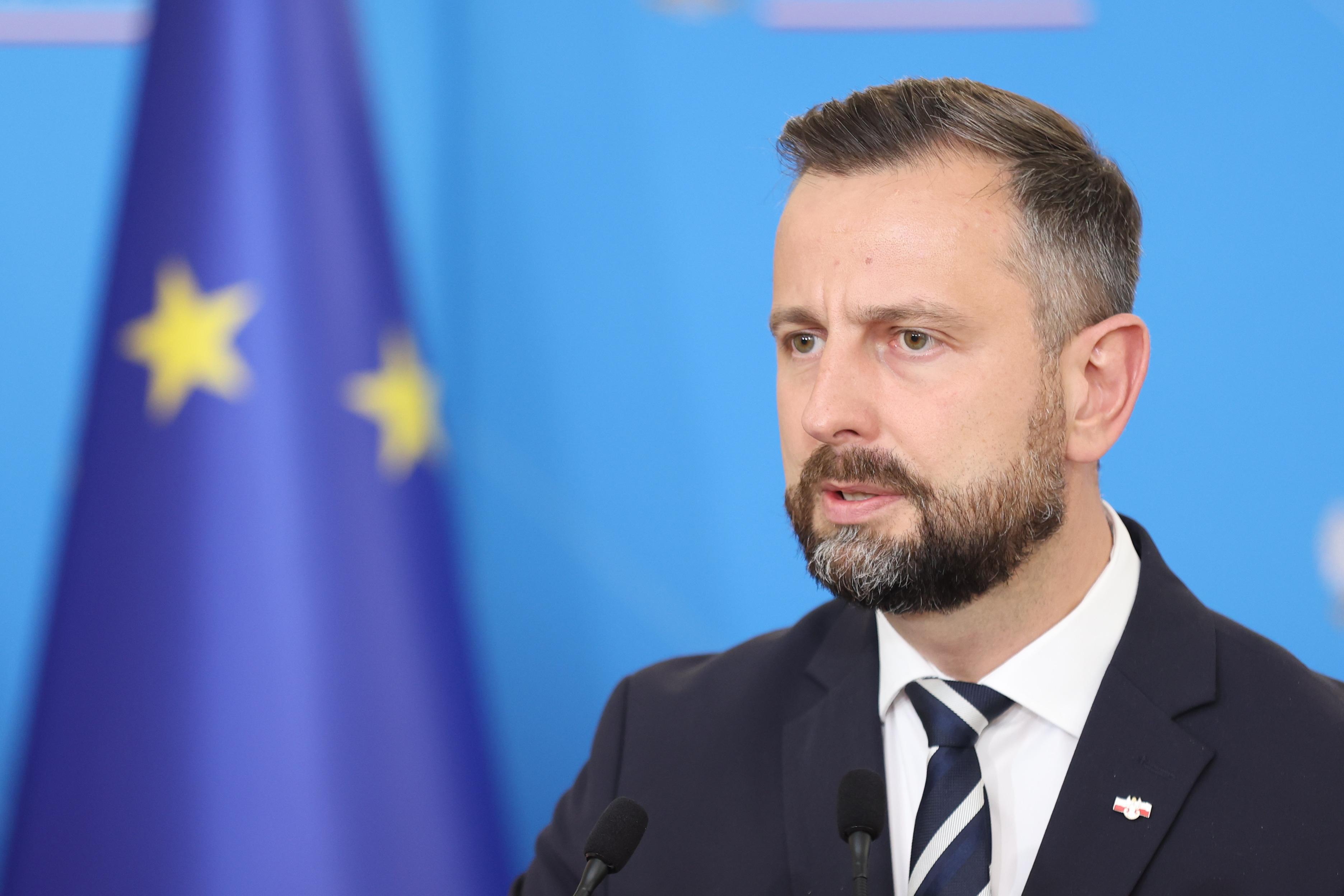Government to support Polish transport companies
20.08.2024
We are addressing the needs of Polish transport companies. On Tuesday, the government passed a bill aimed to support the transport industry. The new laws will facilitate combating unfair competition from non-EU companies. The ministers were also briefed on the 2nd and 3rd requests for payments in connection with the National Reconstruction Plan, the effects of heavy rainfall and the situation in the Gliwice Canal.

Fighting the elements together
Yesterday, an atmospheric front passed through Poland, resulting in thunderstorms and heavy rainfall. On 19 and 20 August, firefighters were called nearly 3,000 times. Most incidents occurred in Greater Poland and Mazovia.
“The government and the Government Security Centre are kept up to date. The situation is under control. We are ready to deploy the Territorial Defence Forces, should the need arise,”
said Deputy Prime Minister Władysław Kosiniak-Kamysz at a press conference after the cabinet meeting.
The responders are busy cleaning up after the storms - removing fallen trees and branches, as well as pumping out water from flooded basements, garages and streets. In Warsaw, the S8 expressway was flooded, while the Służewiec Brook embankment was damaged.
Protecting the Polish transport sector
The government is shortening the deadline for registration in the monitoring system for road and rail transport of goods and trade in heating fuels, also known as the SENT system.
“To meet the expectations of the representatives of the transport sector, we are speeding up the deployment of digital information and registration requirements of transports carried out by non-EU companies. It will come into effect in November,”
Władysław Kosiniak-Kamysz announced.
The introduction of a monitoring system for transports from countries outside the European Union is aimed at combating unfair competition. It will concern international road transport companies.
Further EU funding for Poland
Poland is set to receive new funds from the National Recovery and Resilience Plan. The government will submit the 2nd and 3rd requests for payments to the European Commission by 13 September. They will concern at least 30 billion PLN. The detailed timetable was presented to the Council of Ministers by the Minister of Funds and Regional Policy, Katarzyna Pełczyńska-Nałęcz.
“We found a missed opportunity, an oversight by the previous cabinet. They have failed to submit payment requests and meet self-imposed milestones. Because of this, they could not use the money sorely needed by the Polish economy,”
the Deputy Prime Minister admitted.
This funding has helped to put the Polish economy on the right track. The first instalment saw Poland receive 27 billion PLN, earmarked for the Clean Air Programme, digitisation, broadband internet access, healthcare, education and support for local processing companies.
“Many of the goals for our economy, for our entrepreneurs and local governments, are achieved with the help of the funding from the National Recovery Plan. The second and third requests will be submitted by 13 September, concerning the amount of at least 30 billion PLN. It will be the largest transfer of funds from the European Union to Poland,”
said Władysław Kosiniak-Kamysz.
Poland is set to receive a total of nearly €60 billion, or around 268 billion PLN. Poland has also unlocked access to €76 billion from the Cohesion Fund, bringing the grand total to €137 billion, or around 600 billion PLN.
Environment - our key priority
The situation with the Oder River caused by algae bloom and resulting in the death of at least 3.3 million fish, was the result of years of neglect and a lack of systemic solutions. As of today, this issue only affects the Kłodnica River, at the confluence of the Gliwice Canal. The government and the Ministry of Climate and Environment joined forces with relevant organisations to contain the effects and remediate the causes.
“Urszula Zielińska, Minister of Climate and the Environment, presented the monitoring data concerning the crisis situation regarding the reservoirs. In addition, we discussed the involvement of state-owned companies - including mines - in the process of remediating the issues and supplying desalination systems,”
the Deputy Prime Minister noted.
According to the 250 million PLN contract concluded in 2023 with the Inland Fisheries Institute - Polish Research Institute, 825 measuring stations were to be installed by the end of 2024. Not a single one was installed by the end of last year. The contract did not specify the technical and functional requirements of the system or the guidelines for a feasibility study, did not ensure an optimal choice of solutions, and did not guarantee the proper operation of the monitoring after its conclusion.
“We will be making up for this oversight. The situation on the Oder River, the cleanliness of Poland's rivers, desalination, pollution and protecting the environment, is a priority for our team. We are looking into the possibility of co-financing expenditure in this area from the Just Transition Fund and European Funds, something that was neglected before as well,”
Mr. Kosiniak-Kamysz stated.
In the process of combating the algae, the Institute of Environmental Protection and the General Directorate of Environmental Protection conducted an experiment using hydrogen peroxide. The first trial results showed that hydrogen peroxide was effective in eliminating the algal bloom. The Territorial Defence Forces, soldiers of the chemical forces, as well as units of the State and Volunteer Fire Brigades are involved in the process.



